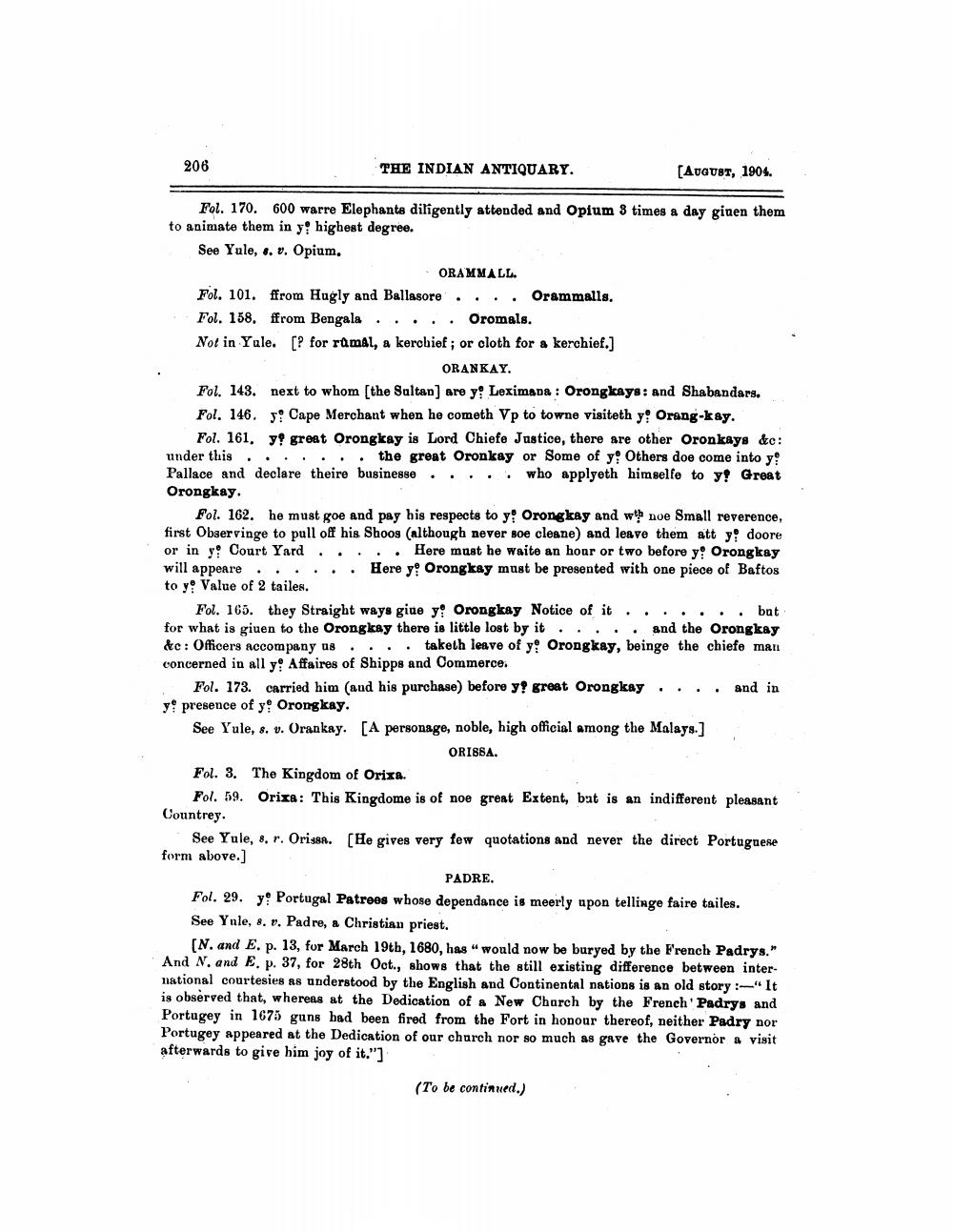________________
206
THE INDIAN ANTIQUARY.
[AUGUST, 1904.
Fol. 170.600 warre Elephants diligently attended and Opium 3 times a day ginen them to animate them in y! highest degree. See Yule, 6. v. Opium.
ORAMMALL. Fol. 101. ffrom Hugly and Ballasore ...Orammalls. Fol. 158. from Bengala ..... Oromals. Not in Yale. [? for ramal, a kerchief; or cloth for a kerchief.]
ORANKAY. Fol. 143. next to whom (the Sultan) are y! Leximana : Orongkays: and Shabandars. Fol. 146. y: Cape Merchant when he cometh Vp to towne visiteth y! Orang-kay.
Fol. 161. y great Orongkay is Lord Chiefe Justice, there are other Oronkays &c: under this ....... the great Oronkay or Some of y: Others doe come into y! Pallace and declare theire businesse.... who applyeth himselfe to y! Great Orongkay.
Fol. 162. he must goe and pay his respects to y! Orongkay and why noe Small reverence, first Observinge to pull off his Shoos (although never soe cleane) and leave them att y! doore or in y! Court Yard ..... Here mast he waite an hour or two before y! Orong kay will appeare ...... Here y! Orongksy must be presented with one piece of Baftos to y: Value of 2 tailes.
Fol. 165. they Straight ways give y! Orongkay Notice of it....... bat for what is giuen to the Orongkay there is little lost by it..... and the Orongkay &c: Officers accompany us.... taketh leave of y! Orongkay, beinge the chiefe man concerned in all y! Affaires of Shipps and Commerce.
Fol. 173. carried him and his purchase) before y! great Orongkay... and in y! presence of y! Orongkay. See Yule, s. v. Orankay. [A personage, noble, high official among the Malays.]
ORISSA. Fol. 3. The Kingdom of Orixa.
Fol. 59. Orixa: This Kingdome is of noe great Extent, bat is an indifferent pleasant Countrey.
See Yule, 8. r. Orissa. (He gives very few quotations and never the direct Portuguese form above.]
PADRE. Fol. 29. y Portugal Patroes whose dependance is meerly upon tellinge faire tailes. See Yule, 8. v. Padre, a Christian priest.
(N. and E. p. 13, for March 19th, 1680, has would now be buryed by the French Padrys." And N. and E. p. 37, for 28th Oct., shows that the still existing difference between international courtesies as understood by the English and Continental nations is an old story "It is observed that, whereas at the Dedication of a New Church by the French' Padrys and Portugey in 1675 guns bad been fired from the Fort in honour thereof, neither Padry nor Portugey appeared at the Dedication of our church nor so much as gave the Governor a visit afterwards to give him joy of it."]
(To be continued.)




